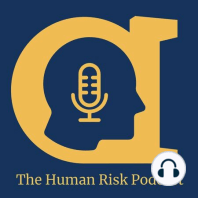37 min listen
Jean-Marc Le Tissier on Communities
ratings:
Length:
63 minutes
Released:
Sep 15, 2021
Format:
Podcast episode
Description
How can building a community help business? That's what my guest Jean-Marc Le Tissier helps me to understand on this episode. We're all familiar with the idea of a community, in terms of where we live, but how might it be relevant for businesses and other organisations. The answer is that what works for us in our domestic lives, can also have benefits in a work context. If we want to achieve our goals, then we need to work collaboratively together.Businesses can thrive if they build communities — whether that's of customers or employees — and Jean-Marc talks me through how that can happen. In our discussion, we explore how trust can be built and how having a common purpose can drive better outcomes.To find out more about Jean-Marc see: https://www.halton-bridge.com/jean-marc-le-tissier/On the episode, I also mention the re-recorded interview I did with Tom Hardin. You can find that here:https://www.humanriskpodcast.com/tom-hardin-on-his-experience/I also mention my discussion with Lisa Richardson on the psychology of Peloton, a company that has successfully built a community: https://www.humanriskpodcast.com/lisa-richardson-on-the-psychology/
Released:
Sep 15, 2021
Format:
Podcast episode
Titles in the series (100)
Tom & Christian's 2nd Human Risk Talk: In this episode, I'm joined again by co-host Tom Hardin. Together we explore Human Risk related stories we've come across that we think are worth diving into in more detail. You can hear Tom's story in Episode 2. In this episode, we look at three... by The Human Risk Podcast
